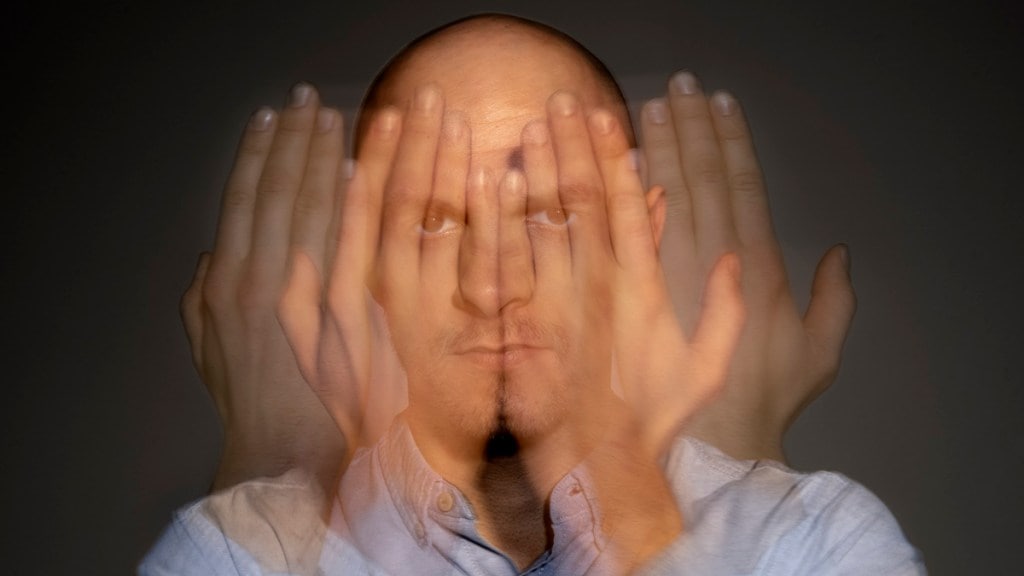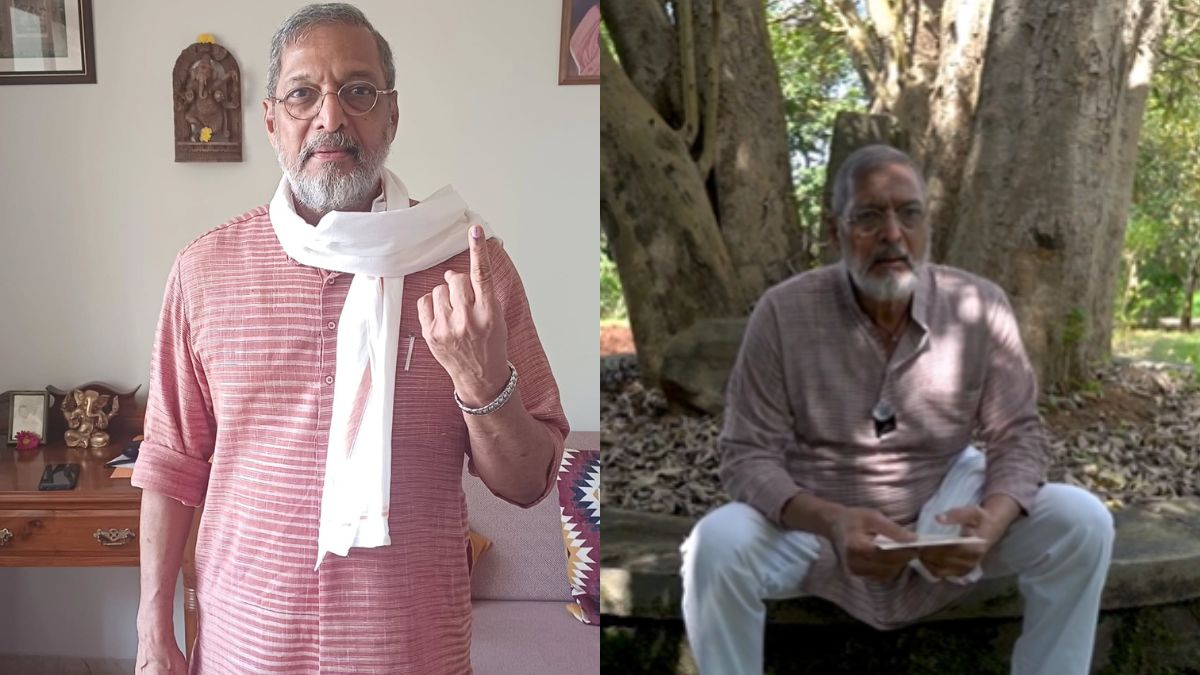Dr. Rajendra Gupta’s journey was far from easy. An industry veteran and former advisor to the Union Health Minister, he had to navigate life’s challenges from a young age. When his meritorious brother was diagnosed with schizophrenia, a serious mental illness that affects a person’s thoughts, feelings, and behaviours, his life changed completely.
“Schizophrenia had a lasting impact on my family. In 2013-14, when I was drafting the election manifesto of BJP, I was doing back and forth to Mumbai to ensure that my brother survived, as besides being a schizophrenia patient he contracted MDR-TB. That was an extremely difficult time for the family but his doctor saved his life. From being a academically-gifted child, my brother has now become dependent on the family,” Dr. Gupta told Financial Express.com.
Because of his brother’s condition, he had made numerous personal as well as professional compromises.
“…at many instances I had to leave everything to rush back to attend to him. He is now well and has a caretaker. His, and our lives have changed drastically because of schizophrenia,” he revealed.
His brother was extremely aggressive when he was in school which the family initially ignored. “Once, when he almost fatally beat up a neighbour, we realised that it was a serious mental condition, and then, it took us a couple of years to get the right diagnosis and treatment,” Dr. Gupta told Financial Express.com.
His diagnosis came as a shock as he was already to struggling due to his mother’s battle with cancer after his sister’s death. “The family had just recovered from the death of my eldest sister in 1995, and later in 1996, the mother was diagnosed with the last stage of cancer, and then, in 1997, she passed away. There were so many health tragedies that we did not get time to think or absorb, it was one crisis after the other. We had no option but to deal with them. In reflection, this could have broken us apart as a family, but somehow, we don’t know how we sailed through,” he shared.
His brother’s diagnosis showed him how difficult it is mentally-ill patients to avail basic health facilities.
“There is no support system. When you have to take the aggressive patient through a public transport to the hospital to collect medicines and then you see how difficult it is for the patients or their caregivers. Somehow, it is an unsympathetic system with insensitive doctors; a rigid system out of sync with the realities and needs of patients with such illnesses, and this is my reason for founding the Patient’s Union to bring the patients voices to the policy-makers,” Dr. Gupta explained.
According to the World Health Organization (WHO), schizophrenia causes psychosis and is associated with considerable disability and may affect all areas of life including personal, family, social, educational, and occupational functioning. More than two out of three people with psychosis in the world do not receive specialist mental health care. Schizophrenia affects approximately 24 million people or 1 in 300 people (0.32%) worldwide.
Understanding Schizophrenia
Schizophrenia is a severe and chronic mental disorder that controls how one thinks, feels, and acts. Usually described as a splitting or multiple personality disorder, the concept of schizophrenia is not entirely but rather a disconnection from reality with symptoms that include hallucinations, delusions, disorganized thinking, and impaired cognitive functioning.
“Symptoms that individuals with schizophrenia often present include hearing voices, seeing things that others cannot see, believing ideas that are not grounded in reality, and the inability to process emotions or relate them appropriately. The cause of schizophrenia is still unknown, though the researchers have a belief that this is a disorder caused by a combination of genetic, biological, and environmental factors. Genetic predisposition plays an important role in this disorder, as the risk of getting this disease is higher for those who have a family history. Brain abnormalities and dysfunction are strongly linked with this condition, such as an imbalance of neurotransmitters like dopamine,” Dr. Rahul Chandhok, Sr. Consultant & Head Psychiatry, Artemis Lite NFC, New Delhi told Financial Express.com.
It is noteworthy that environmental factors, for example, exposure to infections, malnutrition, or significant stress in the prenatal stage, can also initiate its onset. For most people, schizophrenia starts in late adolescence or early adulthood at a time of change or stress.
“Diagnosis at an early age and appropriate treatment by therapy are a must for the management of symptoms and achieving improvement in the quality of life of such a person,” Dr. Chandhok revealed.
Schizophrenia often begins with subtle signs before becoming more obvious. “When patients are first diagnosed, they typically present a range of early symptoms categorised as positive, negative, or cognitive. Positive symptoms include hallucinations, such as hearing voices or seeing things that aren’t there, delusions, which are false beliefs not based in reality, and disorganised thinking or speech. Negative symptoms include decreased emotional expression, increased withdrawal from social interactions, and inability to perform daily activities or hygiene. Cognitive symptoms are also common, characterised by impaired memory and decreased attention span and inability to make decisions, Dr. Chandhok explained.
These symptoms may vary in intensity and may be continuous or intermittent. They disrupt the ability of the individual to function. Moreover, certain people are more prone to schizophrenia. People with a family history of the disorder are more susceptible due to genetic susceptibility.
According to Dr Priyam Sharma, Psychiatrist at Fortis Vasant Kunj, Delhi, common symptoms of schizophrenia include:
- Delusions: False beliefs that remain unchanged despite contradicting evidence.
- Hallucinations: Most common is auditory that is hearing voices or strange sounds not heard by others.
- Disorganised speech
- Grossly disorganised behaviour and poor self care
- Lack of motivation
Schizophrenia in India
In India, it has been estimated to affect around 3–6 per 1,000 individuals, which works out to almost 4.6 million people. “This number gives an idea of the burden that mental health bears in the country. The prevalence in India is similar to that reported globally but has unique challenges arising from socio-cultural stigmas and a scarcity of mental health resources,” Dr. Chandhok revealed.
According to him, the distribution of schizophrenia cases is relatively even across regions globally, but the absolute burden is huge in India because of its large population. In general, high-income countries have better mental health infrastructure; however, a treatment gap of this magnitude in India is quite significant because estimates indicate that 60–80% of people suffering from schizophrenia remain untreated because of stigma, lack of awareness, and inadequate access to care.
“India is taking steps to combat schizophrenia with the rollout of the National Mental Health Programme that has set forth greater access to treatment and ensured patient rights. Although such resources for mental health are very sparse as compared to international standards, greater funding and awareness and community-based support systems have reduced stigma and encouraged early diagnosis. These steps are paving the way for a brighter future in mental health care,” he said.
In India, schizophrenia is typically delayed in diagnosis because of cultural misunderstanding and stigma attached to mental illness. Dr. Chandhok highlighted that the patients are frequently misdiagnosed initially with other illnesses, or they may present late in the course of the disorder, after it has significantly taken hold.
“Poor awareness of prodromal symptoms, including delusions or auditory hallucinations, results in delayed suffering before treatment is initiated. There are many challenges in diagnosing schizophrenia because it has the same features as schizophrenia and other psychiatric disorders, including mood disorders or substance-induced psychosis. Treatment issues are also daunting. Even with the existence of antipsychotic medications, most patients either fail to comply with their prescribed schedules because of side effects or do not know how critical continued medication is,” he said.
There are not enough mental health practitioners in rural settings, which restricts access to long-term care, counselling, and rehabilitative services. The large treatment gap further exacerbates management, as most patients do not get proper treatment because of a lack of resources and social stigma, he added.
‘Differentiation of schizophrenia from other mental disorders is complex’
Differentiation of schizophrenia from other mental disorders is a complex task and includes a clinical examination in depth, involving medical history, assessment of symptoms, and standardised criteria forvdiagnosis, such as the DSM-5 (Diagnostic and Statistical Manual of Mental Disorders, Fifth Edition).
“Schizophrenia is primarily defined by the presence of positive symptoms, which include hallucinations (usually auditory in nature), delusions, and disorganised speech or behaviour, in addition to the negative symptoms, such as flat affect, avolition, and social withdrawal. The diagnosis must be ruled out from mood disorders, which include bipolar disorder or major depressive disorder with psychotic features, based on the presence of psychosis with no significant mood symptoms. Psychosis persists even when mood symptoms are absent in schizoaffective disorder,” Dr. Chandhok told Financial Express.com.
Conditions such as substance-induced psychotic episodes or medical illnesses (such as brain tumours or infections) are excluded by physical examination, laboratory tests, and neuroimaging. Autism spectrum disorder may sometimes co-occur with schizophrenia, but ASD usually presents in early childhood and does not have the characteristic psychotic symptoms of schizophrenia.
“The importance of a longitudinal assessment lies in the fact that schizophrenia diagnosis requires the symptoms to persist for at least six months with an identifiable functional impairment. Cognitive testing and family history analysis are equally essential to find predisposing genes or other risk factors. It thus guarantees accurate differential diagnosis and informs the appropriate management strategy,” he informed.
‘Adherence to antipsychotic medications very challenging’
Managing schizophrenia entails multiple challenges, the most challenging one being medication. According to Dr. Chandhok, many of the patients cannot stick to antipsychotic medications for long due to side effects such as sedation, weight gain, or extrapyramidal symptoms that cause relapse.
“Cognitive impairments like memory deficits or poor insight termed as anosognosia also aggravate this condition because most of the patients fail to perceive their need for treatment. Stigma is another major barrier. The fear of discrimination keeps many patients from seeking care on time, leading to late diagnosis and progression of the disease. Poor access to mental health services, especially in rural areas, makes management difficult because most patients lack follow-up care and psychosocial support,” he told Financial Express.com.
Schizophrenia is treated holistically by attending to the comorbid disorders like anxiety, depression, or substance use disorders, which make the treatment plans complex. Social and occupational rehabilitation and psychotherapy are not adequately utilised due to a lack of resources. This can be overcome by a multidisciplinary approach involving medication, community support, and awareness campaigns.
Moreover, the treatment currently used to treat schizophrenia, namely the antipsychotics, while they do relieve symptoms, has substantial drawbacks.
“First-generation antipsychotics work to manage positive symptoms like hallucinations and delusions but have unfavourable side effects in the form of extrapyramidal symptoms (EPS), tardive dyskinesia, and sedation. Second-generation antipsychotics, with the general exception of having fewer side effects, are not immune from side effects related to weight gain, metabolic syndrome, and diabetes, all of which impair compliance on the part of patients,” Dr. Chandhok said.
These medications are not curative but only for symptom management. Thus, most patients require long-term treatment. Current drugs inadequately address cognitive symptoms, including memory deficits and poor executive function. Antipsychotics vary in their efficacy among individuals; a large percentage of patients experience inadequate response or polypharmacy for symptom management.
“There is also a deficiency in personalised medicine, as the genetic and environmental factors that influence drug metabolism and efficacy are not yet known. In conjunction with insufficient psychosocial support and rehabilitation resources, these inadequacies place significant barriers in managing schizophrenia effectively,” he added.
Side effects of antipsychotic medications
The most commonly prescribed antipsychotic drugs are second-generation drugs, and these are mostly used for the treatment of schizophrenia. Dr. Chandhok revealed that these drugs have various side effects, which the patients usually complain about.
“Some of the most common side effects include weight gain, sedation, and metabolic issues like increased blood sugar and cholesterol, which may result in diabetes and cardiovascular complications. Extrapyramidal symptoms, such as tremors, rigidity, and tardive dyskinesia (involuntary movements of the muscles), are also common with both first- and second-generation antipsychotics. Such side effects may significantly affect patient compliance,” he informed.
Such effects are often diminished either through prescription of anti-EPS medication like anticholinergic drugs or adjustment in doses of the antipsychotic to obtain the best possible balance between its effectiveness and minimizing the side effects.
“Lifestyle interventions like diet alteration and regular physical exercise can aid in weight management and other metabolic issues. Regular observation for signs of onset of diabetes and heart diseases may also be carried out. New interventions include long-acting injectable antipsychotics, which have improved following by decreasing the need for daily medication intake. There is ongoing research into drugs that target specific neurotransmitter systems with the hope that side effects might be minimised while maximising the benefit of treatment in the future,” he highlighted.
‘New advancements promise better patient outcomes’
Recent advances in the treatment and diagnostics of schizophrenia promise better outcomes. Dr. Chandhok informed that the development of long-acting injectable antipsychotics is a step forward in improving medication.
“These formulations offer consistent drug levels, reducing relapse rates and improving patient compliance. Newer second-generation antipsychotics with a more favourable side-effect profile have shown better results in managing both positive and negative symptoms. Diagnostic imaging of the brain through functional MRI and PET scans helps in the detection of abnormalities that are linked to schizophrenia, which improves early diagnosis. Genetic research and biomarkers are advancing with potential for more individualised treatment plans, enabling clinicians to make interventions based on individual patient profiles,” he told Financial Express.com.
With these advancements, the future of managing schizophrenia is becoming more hopeful, providing patients with better quality of life and long-term stability, he said.
Dr. Sharma told Financial Express.com that Xanomeline/trospium chloride (Cobenfy) is a new drug which is being explored for their potential to target Schizophrenia differently and reduce side effects. “Researches are going on for different other new modalities of treatment of Schizophrenia,” she said.
Role of family
After his brother’s diagnosis, Dr. Gupta and his family were “ostracised” by the society and other family members. “Nothing was available . Except a great doctor who supported us and the oldest mental hospital of India. RHM – Thane, where he was treated during the initial years. We have seen three mental hospitals — Varanasi, Bareilly and Thane – These are living hell! At every stage, and after his plight, i understand why we have so many mental patients as destitute. There is no ‘System’ that exists for mental health patients,” he told Financial Express.com.
“He is our brother and we had to be with him. Thank God, we have been able to manage his expenses and that of his caretaker. In the earlier years, managing job, family and his illness was very tough, but the harsh period is behind us.”
Family support is essential in the management of schizophrenia. It helps with the emotional stability of the patient, encourages compliance with medication, and minimizes the possibility of relapse.
Dr. Chandhok revealed that psychoeducation is conducted among families so that they better understand the disorder, identify the earliest signs of a possible relapse, and are equipped to manage a crisis well.
“Families who are educated on symptoms and treatments help create a recovery-friendly environment with a minimal stigma. Involving families in therapy sessions, be it family therapy or cognitive behavioral therapy, helps create a collaborative care plan that addresses the needs of the patient and family members. Complete and sustainable care is, therefore, ensured due to regular communication between the healthcare providers and the family members,” he explained.
Family should be very tolerant and non-judgmental when dealing with a loved one diagnosed with schizophrenia.
“I advise them to learn as much as they can about the condition to reduce stigma and facilitate some empathy. Active listening and open communication without confrontation enable the patient to feel heard and understood. Families should encourage medication and help the patients with their side effects by coordinating with experts to adjust whenever necessary,” he said.
A set daily schedule helps in building a stable sense of environment for the patient; stress management through mindfulness or relaxation techniques helps patients as well as their families.
“The final involvement of family members in therapy and support groups to cope and enhance family unity as an emotional source of support and strength. Check regularly to ensure that the care plan is effective and responsive towards the patient’s changeable needs,” he said.
A way forward
A multifaceted approach to increase awareness and reduce stigma about schizophrenia, Dr. Chandhok revealed. Mental health education should be integrated into school curricula and public health campaigns, so understanding this condition will start from early ages.
“The portrayal of schizophrenia must change, becoming realistic, compassionate, and non-stereotypical to make the condition seem more human. Involving people who have schizophrenia in advocacy work is also helpful for changing the conversation, promoting recovery stories, and showing that treatment does work. Altogether, all these efforts could reduce misconceptions and foster more empathy,” he said.
One of the most common myths about schizophrenia is that people with the disorder are violent or dangerous, which is a stereotype. “In fact, most people with schizophrenia are not violent and are more likely to harm themselves than others. Another myth is that schizophrenia is the same as having multiple personalities, which is not true. It is a complex disorder characterized by interruptions in thought, perception, and reality but does not include the existence of multiple distinct identities. The prevalent misconceptions related to it are causes for stigma and improper care,” he told Financial Express.com.
It is essential to highlight that schizophrenia, just like any other medical problem, is definitely treatable if given the proper care and support. “Most people suffering from schizophrenia lead productive lives, are in control of their symptoms, and make positive contributions to society. Better results are achieved with early detection, continued treatment, and well-sustained support from the family,” Dr. Chandhok said.
As society becomes enlightened about mental illness, we could expect less stigmatization and empathy towards the situation, making patients feel more inclined to seek and be accepted within society. Promise is in view as awareness towards mental health progresses, he added.
DISCLAIMER: If you or someone you know is struggling with their mental health or in distress contact the Vandrevala Foundation’s helpline (+91-9999666555) which is available in 11 languages including English and can be accessed via telephone or WhatsApp 24×7. You can also contact Fortis Hospital’s National Helpline number 91-8376804102 which is available 24×7. You can also contact the Government Mental Health Rehabilitation Helpline ‘KIRAN’ at 18005990019 which is available 24×7.







